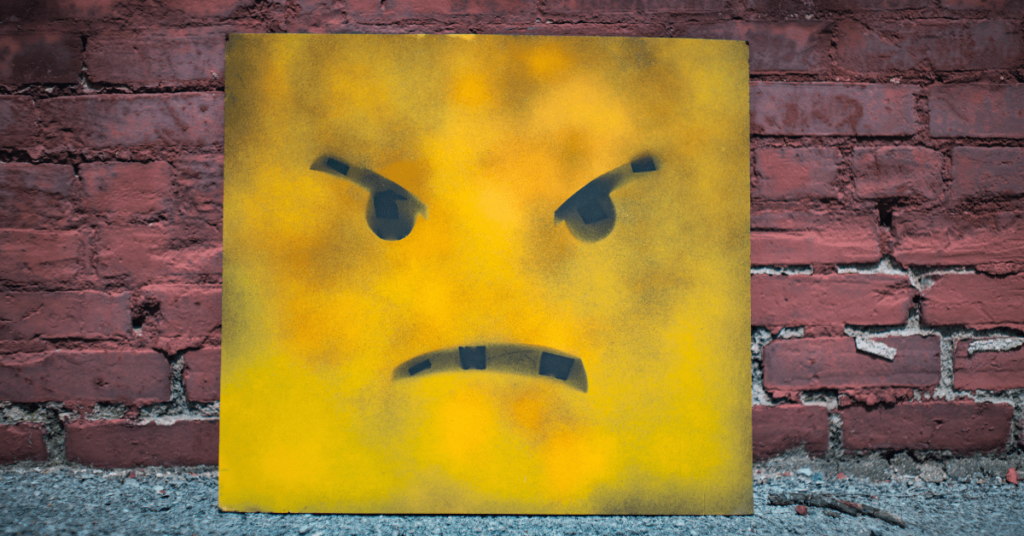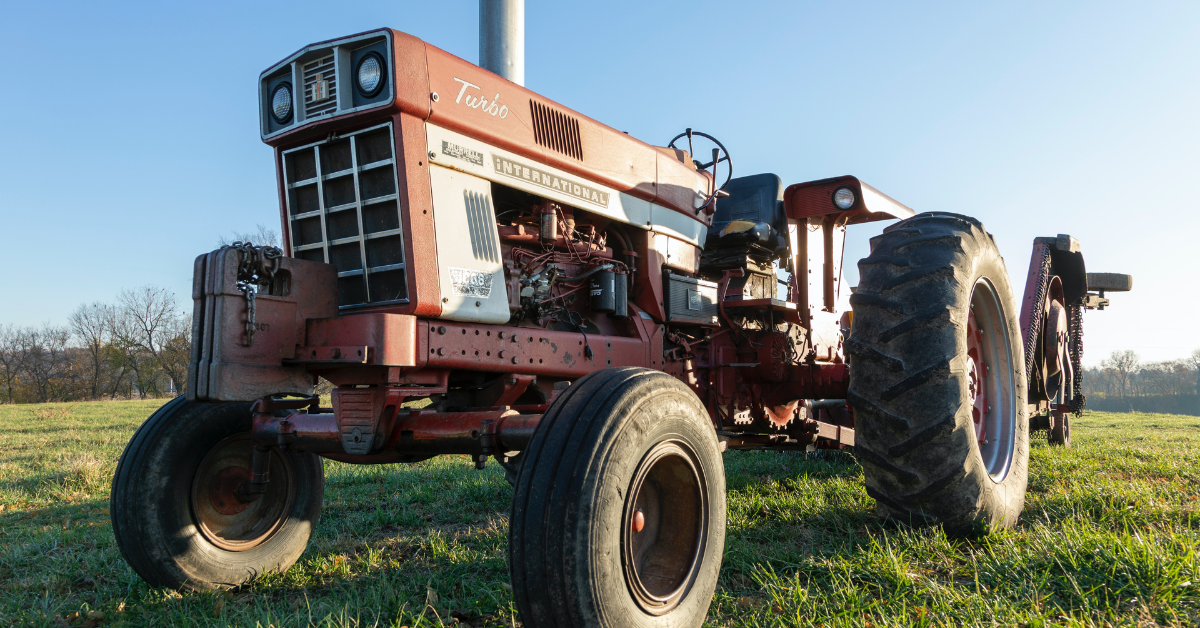What would you do if you thought it was the end of the world?
Maybe, like me, you’ve had such thoughts in recent years.
Oh, don’t think I’m a doomsdayer. While I do have an embarrassing number of Mason jars, that’s to preserve the taste of Michigan summers; I promise; I don’t wear cardboard signs, and I never forward chain emails.
It’s just, every once in a while, the thought flits past my mind: what if this is it?
I don’t think I’m being unreasonable, considering how often I hear the word “unprecedented” these days—in reference to pandemics, politics, or rising sea levels. I woke up this morning to a hazy sunrise, the result of massive fires ripping through Canadian forests far to the north.
We’re poised to see apocalyptic signs all around us, and if you’ve wondered at some point in the last three years if maybe Christ should just come again already and judge us all, I hope you know you’re not alone.
So, what would you do if you thought it was the end of the world?
The letters to the Thessalonians were written to a community that had the same question.
Paul wrote his first letter to the Thessalonians very early in the story of Christianity. When it was sent, the gospel stories of Jesus were probably still only oral. Paul wrote his letter to people who believed the Good News he had told them—that Jesus Christ lived, died, and rose again for them and that Christ had ascended to the Father in heaven and promised to come again to make all things new.
The Thessalonians believed that Jesus Christ was coming, and they believed it would happen soon.
Paul closes his first letter with a pastor’s love and encouragement:
Now we ask you, brothers and sisters, to acknowledge those who work hard among you, who care for you in the Lord and who admonish you. Hold them in the highest regard in love because of their work. Live in peace with each other. And we urge you, brothers and sisters, warn those who are idle and disruptive, encourage the disheartened, help the weak, be patient with everyone. Make sure that nobody pays back wrong for wrong, but always strive to do what is good for each other and for everyone else (1 Thessalonians 5:12-15, New International Version).
Second Thessalonians explores many of the same themes as 1 Thessalonians. But, notice the shift in tone:
For you yourselves know how you ought to follow our example…even when we were with you, we gave you this rule: “The one who is unwilling to work shall not eat.” We hear that some among you are idle and disruptive. They are not busy; they are busybodies. Such people we command and urge in the Lord Jesus Christ to settle down and earn the food they eat. And as for you, brothers and sisters, never tire of doing what is good. Take special note of anyone who does not obey our instruction in this letter. Do not associate with them, in order that they may feel ashamed (2 Thessalonians 3:7,10-14).
We’ve gone from “live in peace [and] warn those who are idle and disruptive” to “the one who is unwilling to work shall not eat.”
Maybe you’ve heard that verse quoted before. It’s been used to a variety of (often troubling) ends. John Smith, the English explorer and settler of the Jamestown colony, used it to push early settlers as they learned farming skills in a new land. The Soviet leaders Lenin and Stalin both used it as a fundamental tenet of socialism. The idea was that in a collective society, as long as each person contributed, the society would provide for their needs. In the United States, I’ve heard almost the opposite interpretation: that we should limit or eliminate welfare or other social supports.
What’s going on in these verses? Is Paul telling us to have a “good Protestant work ethic”? Is he justifying socialism? Is he saying we shouldn’t have welfare?
For the Thessalonians at least, it seems the problem hinted at in Paul’s first letter had spiraled into a mess that required firm words. Idle and disruptive people had risen up in the community. They were lazy, and they were causing all sorts of confusion.
But, just who are these lazy people?
If we’re thinking in terms of socialism or welfare, we might think that these idle people are folks who are “taking advantage of the system”. Maybe they receive food stamps when they don’t really need them, refuse to get a job, or expect society to care for all of their needs. Maybe they find all the loopholes and tax breaks; maybe they’re the corporate executives who give themselves big bonuses and bank on their employees bearing the workload without fair compensation.
There’s something to that. Clearly, the people in this passage were not living within the ideal social structure that Paul and his fellow missionaries modeled.
But, notice the word pairing: both letters repeatedly refer to those who are “idle and disruptive.”
It’s not just that these people are lazy—they’re also loud. They’re the type of people who like to point out problems in their community but aren’t interested in doing anything about them.

These are folks who post long rants about the “state of our country” on social media, but are otherwise entirely disengaged. They’re champions of the anonymous letter. They speak out on issues but don’t take action. They’re more interested in anonymous hashtag battles than in relationships with actual people in their own community. They might think the world is going to hell in a handbasket, but they aren’t going to do anything about it but complain.
Do you know people like that?
I’ve got a confession … because I’m feeling a little doomsday-ey here. I don’t like Paul’s command: “Do not associate with them in order that they may feel ashamed.”
It makes me think of broken relationships. Polarization. The many, many reasons church groups separate from each other and the body of Christ splits open leaving all of us wounded and raw.
But, gee whiz, when I think about social media, Paul’s imperative, “do not associate,” seems to be pretty good advice. We give a lot of airtime to complainers. Maybe if the inflammatory statements didn’t get so many “likes” and “shares”, some of those folks would “settle down and earn the food they eat.”
I’m feeling like a doomsdayer again, when what I really want to do is give you a picture of what I think this might look like.
I’d like to tell you about Dale. He’s an unassuming guy; rough hands, kind eyes. He’s been retired for some time, but he’s still an expert with a backhoe. Dale keeps a sharp eye on the grounds around our church building and the house where I live next door. We’ve got a paid lawn service, and volunteers come for a workday once a year to re-mulch the landscaping, but from time to time other needs arise. A couple of years ago, we did a major building renovation. Once the structure was complete the trucks departed, leaving a mess of uneven ground and a massive pile of dirt, much to my three-year-old’s delight.
We could’ve paid the construction company to smooth out the ground, the landscapers to sow grass seed. I heard more than one person complain, and as much fun as my daughter was having playing in the dirt, I was running out of OxiClean and ready to complain myself. But Dale just showed up one day with his tractor and a rake. He patiently graded the ground. He analyzed the slope of the landscape and smoothed out the angles so that the rain water wouldn’t puddle. Then he and Nick, another member of the congregation, spread the seed; came back every day to hook up the hose and sprinkler; watched it grow.
Maybe that sounds like a good ol’ Protestant work ethic. But I think it’s something more. I think Dale does what he does, not just because he’s a hard worker, but because he sees himself as a part of the body of Christ. And, in spite of lots of legitimate things to complain about, being part of Christ’s body sometimes means caring for landscaping.
I don’t know if Dale shares my apocalyptic fears. But I have a hunch that if he did, he’d still choose to get on the tractor.
That’s what it means to be a community of faith—folks gathered around one baptism and one communion table, before one cross because we believe that Jesus Christ lived and died and rose again for us. We believe that he ascended and is seated at the right hand of God the Father. We believe that he will come again. And, like the Thessalonians, we pray that he will come again soon.
What would you do if you thought it was the end of the world?



